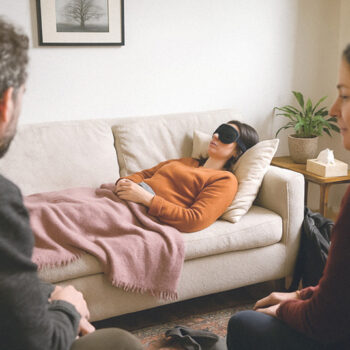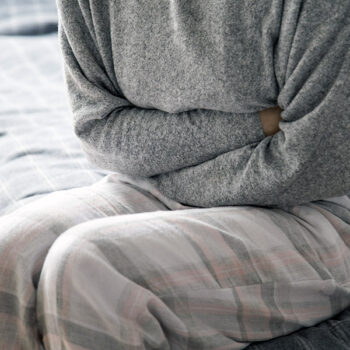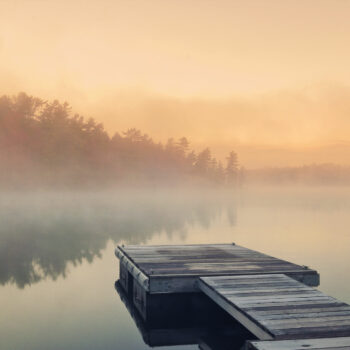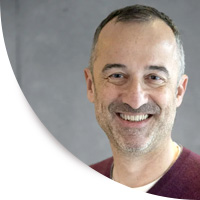Where are Psilocybin Mushrooms Legal?
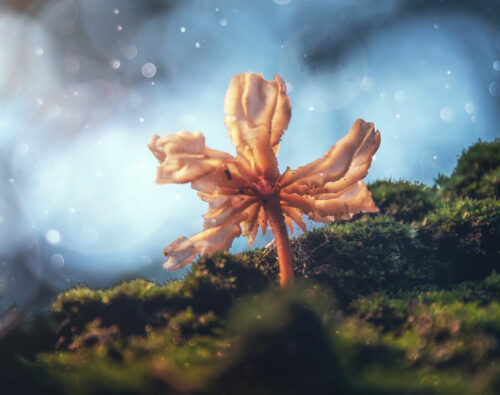
Under the impetus of the United States, many psychoactive substances were prohibited in the 1971 Convention on Psychotropic Substances. This political decision, led by the UN, aimed primarily at limiting the spread of psychedelic drugs such as LSD, ayahuasca and psilocybin. Since 1971, individuals who wish to consume psychedelics have therefore been forced to rely on the underground market to obtain them, fueling the parallel economy of drug dealers.
In the field of science, research authorizations have been severely restricted, as demonstrated by Robin Carhart-Harris in the documentary Magic Medicine.
A golden age of psychedelic liberalization
The international prohibition followed a wave of enthusiasm for psychedelics in the 1950s and 1960s. As early as the 1950s, many governments began legislating against the use of psychedelic drugs.
Numerous authors such as Hunter S. Thompson (Fear and Loathing in Las Vegas: A Savage Journey to the Heart of the American Dream), Aldous Huxley (The Doors of Perception), and William S. Burroughs (Naked Lunch) popularized the spiritual or mystical experiences that emerged under the influence of psychedelics. Jim Morrison, The Beatles, and even French philosopher Michel Foucault experimented with these substances in an attempt to reach an altered reality.
During this time, hallucinogenic substances were not freely available for sale, far from it. Countries like France prohibited their consumption as early as 1951, but the difference was that they were not yet classified as criminal psychotropic substances. This situation allowed for legal and easy scientific research to be conducted.
Nixon’s presidential campaign and international laws
After this golden age of psychedelics, the Cold War and the Vietnam War created a climate of rebellion in the United States and a need for freedom promoted by the hippies and the American civil rights movements.
Restrictive laws
It is said that the fear of seeing populations fall into addiction or become uncontrollable and threaten power is what pushed President Richard Nixon to campaign against psychedelics. Countries overwhelmingly ratified the prohibition treaty, and that was the end of psychedelics… for a while.
The prohibition of psychedelics
To support these decisions, public authorities extensively communicated on the dangers of psychedelics. The unhappiness of youth and junkies was attributed solely to the consumption of hallucinogenic drugs, which allowed the fundamental principles of Western societies to remain unquestioned.
This propaganda campaign left a lasting mark on people’s minds. That is why, even today, we still believe that psychedelics are illicit hard drugs, on par with cocaine or heroin. The mention of LSD or magic mushrooms still elicits a certain concern in conversation. Enthusiasts of psychedelics never know how they will be received, caught between mystical fascination and complete disapproval.
Progressive rehabilitation
However, attitudes are evolving: the development of alternative methods of well-being is leading more and more people to seek balance beyond traditional medicine, without completely rejecting it. For nearly 30 years, the emergence of legal and safe parallel therapies such as meditation, hypnosis, or naturopathy has shown a global interest in other ways of accompanying daily life.
In line with this changing perception, hallucinogens are now being considered a serious avenue for the future of medicine by a handful of scientists. Scientific research highlights the therapeutic potential of psilocybin in reducing symptoms of depression and anxiety, which has sparked a certain enthusiasm.
What is the future legal framework?
Through experiences and discoveries, researchers will contribute to either relaxing or maintaining the laws that regulate the circulation of psychedelics.
Today, psychedelic drugs are starting to shed their label as illegal recreational substances. Mainstream works, such as Netflix documentaries or the series Nine Perfect Strangers, also contribute to creating excitement around mushrooms… even leading to the creation of the first legal psychedelic retreats in the Netherlands.
All these factors contribute to presenting a more nuanced image on a case-by-case basis, without, however, changing the existing laws.
Legality of magic mushrooms around the world?
Tolerance in Spain
In Spain, psychedelics and hallucinogenic mushrooms are not legal. The law strictly prohibits the sale of psychedelic mushrooms. Nevertheless, the private use of psilocybin in a private space is decriminalized. The purchase of spores is legal, but cultivation must not be intended for consumption or resale.
Furthermore, there is still a system of fines for possession or consumption outside of private properties.
Uninhibited use in Jamaica
For Jamaica, it’s much simpler. Psychedelic drugs have never been officially illegal and are available in many places in the country. The government has adopted a policy of openness towards investments from local and foreign companies, hoping to become the world’s leading destination for psychedelic tourism.
Since 2019, Jamaica has been home to the world’s first psilocybin mushroom research center in Mona. This research center is privately funded with the intention of commercial exploitation, particularly in the field of microdosing.
However, Jamaica faces significant crime and poverty challenges that can hinder the development of its psychedelic activities.
Fully legal in the Netherlands
While the Netherlands did ratify the UN treaty in 1971, their policy of tolerance towards certain drugs, such as cannabis, allowed for the sale of dried and fresh psilocybes under certain conditions.
In the 2000s, the Netherlands clarified their position following several incidents attributed to magic mushrooms. From that point on, only psilocybin truffles were allowed for possession, sale, and consumption. According to the authorities at the time, the psilocybin content in magic truffles would better regulate consumers and limit health risks.
The legality of psilocybin truffles in the Netherlands thus offers the possibility of consuming a derivative of magic mushrooms in Europe without breaking the law. This situation marks the first step towards a renewed international interest in psychedelics.
The Netherlands also offers the option to buy magic mushroom truffles online. But be careful, the legality of this purchase depends on the location where you have your order delivered.
Enjoy a 100% legal psilocybin experience in the Netherlands
Preparation and retreat in English
Enjoy a legal & intense experience in the Netherlands
A psychedelic retreat designed for best results. Small group, one-to-one preparation, experimented facilitators, 1 year monthly integration & awesome place !
Join us
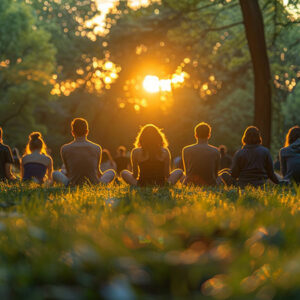
Partially authorized psilocybin in the United States?
Psilocybin is a regulated substance in the United States. The 1978 Psychotropic Substances Act aligns with the Vienna Convention. Therefore, the production and consumption of psilocybin are currently entirely illegal under national law.
However, some states have relaxed their drug laws. The perception of certain psychedelic drugs such as MDMA, ketamine, and psilocybin is starting to shift in American society, and regulations are evolving towards decriminalization or even legalization for medical use.
There are four distinct groups with an open policy towards psilocybin:
- Decriminalized in certain cities: California, Massachusetts, Michigan, Washington, Washington DC.
- Decriminalized statewide: Colorado.
- Medical use of psilocybin legalized in Oregon.
- Authorized for medical research: Maryland, Texas, Utah.
Due to their federal status, consuming within the United States requires a good understanding of the laws.
Swiss law on the use of psychedelics
Psychedelic drugs are prohibited for consumption and possession in Switzerland. However, the governments of cantons such as Zurich, Basel, Fribourg, or Geneva authorize doctors to use hallucinogens – LSD, psilocybin, or MDMA – in the form of assisted psychotherapy. The treatment is reserved for medical support for individuals suffering from depression, anxiety, or addiction, under strict supervision of a healthcare professional.
Legality in the United Kingdom
The United Kingdom adheres to the rules of the UN convention, which categorizes psilocybin as a Schedule I substance, presenting “a significant risk to public health, with no therapeutic value.”
However, the treaty only covers the mushroom itself and not the mycelium (root network) or the spores. Yet, these parts of the mushroom contain psilocybin in moderate amounts. This legal loophole currently allows for the legal purchase of spores in the United Kingdom.
Additionally, foreign companies can freely sell mycelium clumps or magic truffles.
Legal status elsewhere in the world?
Most countries continue to maintain a prohibitionist stance towards psychedelics and psilocybin. In France, UK or Germany, the cultivation, possession, and consumption of magic mushrooms are considered offenses. Interestingly, mushroom picking is also illegal in France, which is quite unique worldwide.
Although research is progressing and yielding promising results, it will take several decades before we see countries overturn the prohibition on psychedelics. However, recent decisions in Australia regarding the authorization of MDMA-assisted therapies provide hope that the medical community may gradually benefit from the promising effects of psilocybin on a case-by-case basis.
Written by Arnaud Beauregard,
Founder of Tangerine Retreat in 2022, I have followed several paths: initially trained as an engineer and then as an entrepreneur, I later pursued training in hypnotherapy to better understand the inner workings of the human mind. I discovered psychedelics at the age of 55. My encounter with altered states of consciousness proved to be a profound revelation which, over time, became a genuine passion.
Last updated on 26 August 2025

